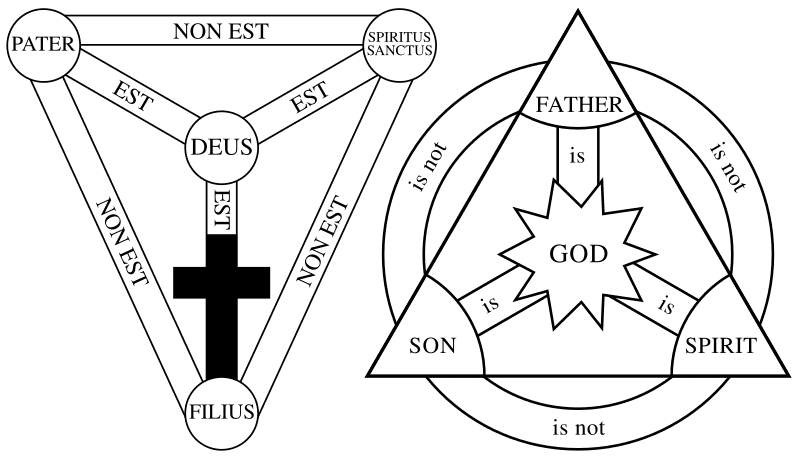What God do you worship? For Christians, the object of their faith is the one God in Three Persons, the Trinity of Father, Son, and Holy Spirit.
After being downplayed or denied in mainline liberal theology, the Trinity is back in vogue in those circles. But not in the sense of the Nicene and Athanasian Creeds, which teach, for instance, that the Son is “of one substance with the Father.”
The Church Fathers explained the Trinity in terms of “being,” with the related concepts of “essence” and “natures.” But modernist philosophy, particularly the existentialism that has greatly influenced modernist theology, has gotten away from those concepts, which has led to the relativism and subjectivism of postmodern thought.
So contemporary theologians have redefined the Trinity in terms of “community.” In the “social Trinity,” the Father, Son, and the Holy Spirit are separate persons who come together to form a community. And we are to do the same. And since the Father, Son, and Holy Spirit–conceived mainly in a tritheistic manner–are equal to each other, we should have the same equality in our families, churches, and nations. This provides a theological basis for the current focus in Mainline Protestantism on feminism, race, LGBTQ issues, etc.
Now it isn’t surprising that liberal theologians would take a traditional Christian doctrine, turn it inside out, and make it support some contemporary preoccupation. That’s what liberal theologians do. That’s what liberal theology is.
But now some evangelical, ostensibly conservative theologians are also replacing the doctrine of the Trinity as formulated by the early church in the creeds with the social Trinity.
Matthew Barrett, professor at Midwest Baptist Seminary, writes about this whole phenomenon in an article for Christianity Today entitled Evangelicals Have Made The Trinity a Means to an End. It’s Time to Change That, with the deck “For 2,000 years, church leaders held to the same Trinitarian doctrine. How did we lose our way?” (The article is behind a paywall, though you might get a limited number of free articles.)
When these evangelical theologians are accused of holding views of the Trinity that are quite clearly heretical by all the standards of the historic church, they invoke “sola scriptura.” They say that as evangelical Protestants they are not bound by creeds, but only the Bible, which they claim supports their view.
Never mind that the Reformation was fully committed to the ecumenical creeds, Nicene Christology, and the historic doctrine of the Trinity, all of which are Biblical. The same is true of later Protestants and evangelicals, including those who did not use creeds but who considered their teaching about the Trinity to be that of Scripture.
All of those Christians of the past, though, must have been mistaken about the God they served. Only now do we understand the true community of Gods, imply these evangelicals, in a view that happens to coincide with that of liberal theologians.
Illustration: 13th century version of “The Shield of Faith,” at left, plus modern version, by AnonMoos, Public domain, via Wikimedia Commons














